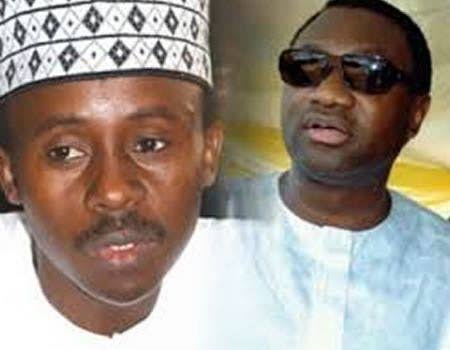The Federal Capital Territory (FCT) High Court in Apo, Abuja, has sentenced a former Chairman of the Nigeria’s House of Representatives ad-hoc committee on fuel subsidy, Farouk Lawan, to seven years imprisonment.
Lawan was charged to court for taking bribes while serving as the head of the committee investigating the fraud around fuel subsidy regime in 2012.
He was found guilty of count one, two and three bordering on corruptly obtaining bribe of $500,000 from businessman, Femi Otedola.
Lawan was said to have solicited and collected a $3 million bribe from Femi Otedola.
The alleged bribe was to remove the name of Zenon Petroleum and Gas Limited, a conpany owned then by Mr. Otedola, from the list of oil companies allegedly involved in the 2012 fuel subsidy fraud.
Earlier, the Federal Capital Territory High Court in Apo, Abuja, has dismissed the preliminary objection filed by Farouk Lawan, against his trial involving allegation that he received $500,000 bribe while serving as the House of Representatives chairman of the ad-hoc committee investigating the fraud around the oil subsidy regime in 2012.
Angela Otaluka, the trial judge, dismissed Mr Lawan’s objection in her judgment being delivered on Tuesday.
The decision set the stage for the judge to consider the case on merit in the rest of the judgment.
Ms Otaluka is the third judge to handle the trial that has spanned over nine years.
Two judges who earlier handled the matter could not see it to the end as the first one was elevated to the Court of Appeal bench and the second withdrew after Mr Lawan accused her of bias.
Mr Lawan was standing trial for allegedly demanding $3 million bribe from billionaire businessman, Femi Otedola, to remove his firms from the list of companies indicted for oil subsidy fraud by the House committee.
The defendant was said to have received $500,000 out of the $3million he demanded from Mr Otedola.
Dismissing Mr Lawan’s preliminary objection to trial on Tuesday, Ms Otaluka said the argument of the defence lawyer, Mike Ozekhome, that Mr Lawan was not a public officer going by the Section 2 of the Independent Corrupt Practices and Other Related Offences Commission (ICPC) Act, was untenable.
The judge held that a public officer is anyone who occupies a public office and who is remunerated with public funds as against Mr Ozekhome’s argument that Mr Lawan was a “mere political office holders.”














